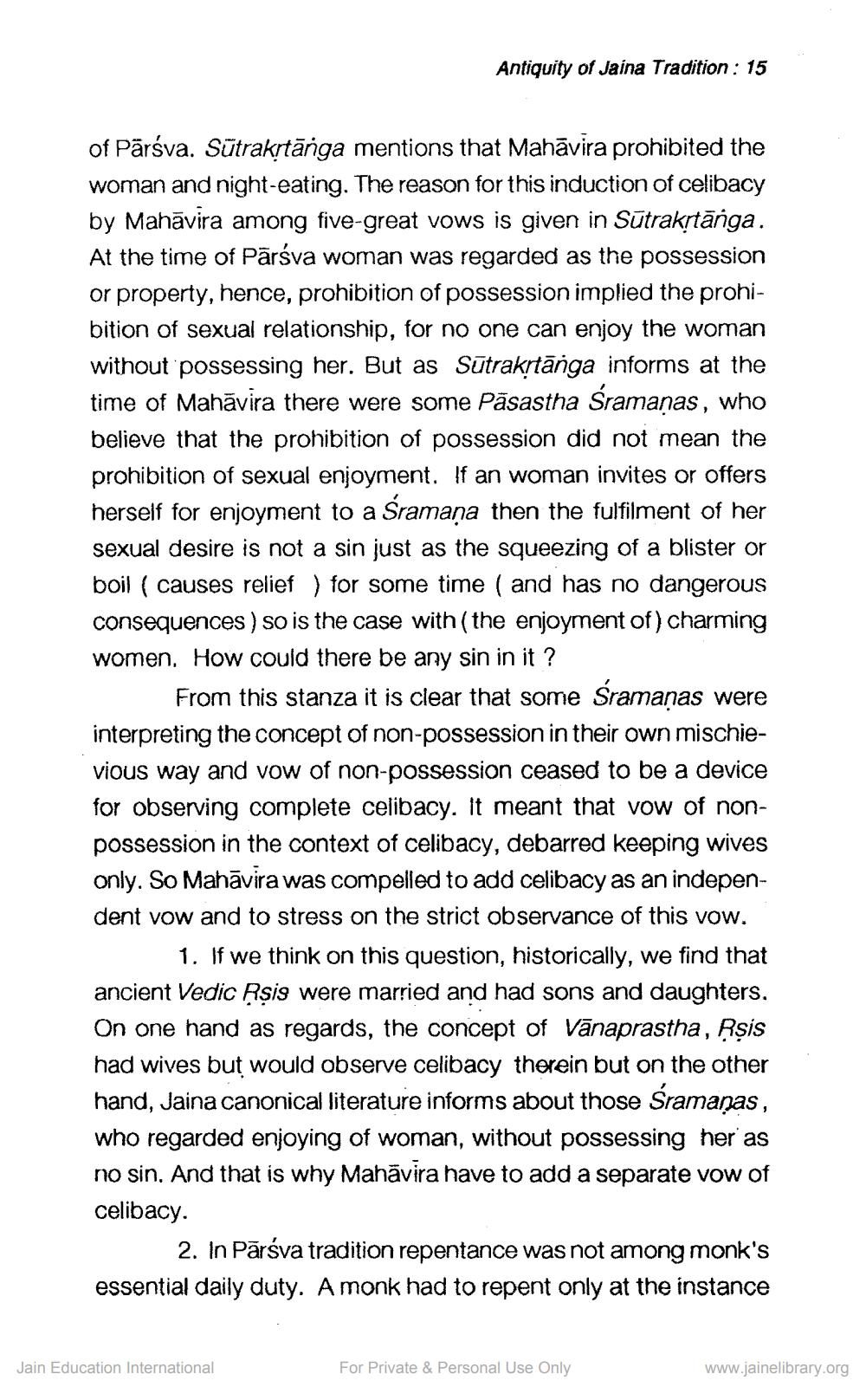________________
Antiquity of Jaina Tradition: 15
of Pārsva. Sūtrakṛtānga mentions that Mahavira prohibited the woman and night-eating. The reason for this induction of celibacy by Mahavira among five-great vows is given in Sūtrakṛtānga. At the time of Pārśva woman was regarded as the possession or property, hence, prohibition of possession implied the prohibition of sexual relationship, for no one can enjoy the woman without possessing her. But as Sūtrakṛtānga informs at the time of Mahāvira there were some Pāsastha Śramaņas, who believe that the prohibition of possession did not mean the prohibition of sexual enjoyment. If an woman invites or offers herself for enjoyment to a Śramana then the fulfilment of her sexual desire is not a sin just as the squeezing of a blister or boil (causes relief) for some time (and has no dangerous consequences) so is the case with (the enjoyment of) charming women. How could there be any sin in it?
From this stanza it is clear that some Śramaņas were interpreting the concept of non-possession in their own mischievious way and vow of non-possession ceased to be a device for observing complete celibacy. It meant that vow of nonpossession in the context of celibacy, debarred keeping wives only. So Mahavira was compelled to add celibacy as an independent vow and to stress on the strict observance of this vow.
1. If we think on this question, historically, we find that ancient Vedic Rsis were married and had sons and daughters. On one hand as regards, the concept of Vanaprastha, Rṣis had wives but would observe celibacy therein but on the other hand, Jaina canonical literature informs about those Śramaņas, who regarded enjoying of woman, without possessing her as no sin. And that is why Mahāvira have to add a separate vow of celibacy.
2. In Parsva tradition repentance was not among monk's essential daily duty. A monk had to repent only at the instance
Jain Education International
For Private & Personal Use Only
www.jainelibrary.org




